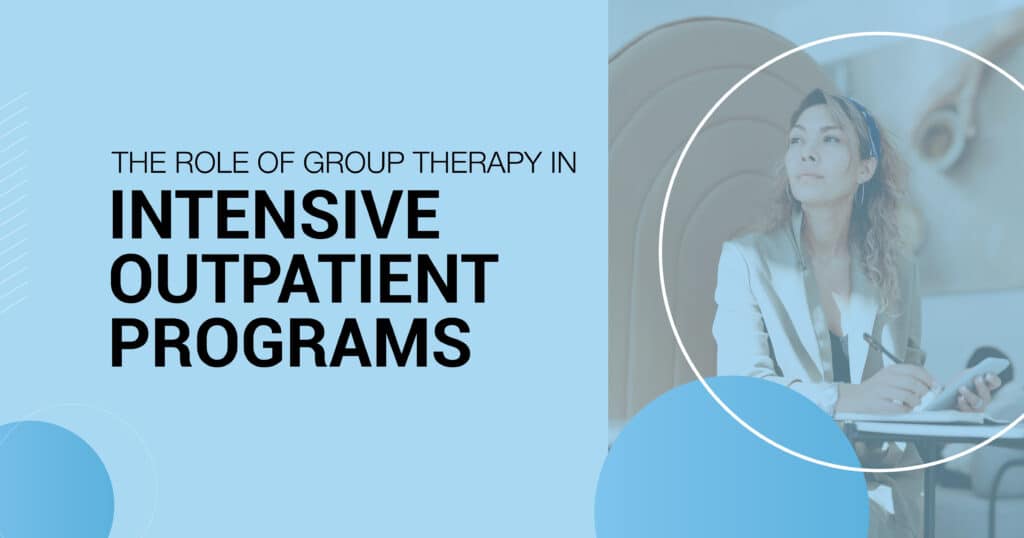Imagine walking a path to recovery where you’re not alone—where every step forward is supported by peers who get what you’re going through. That’s the essence of group therapy in intensive outpatient programs (IOPs). It’s about leaning on each other, sharing struggles and victories, and growing stronger together. In this deep dive, we’ll explore group therapy’s vital role in IOPs, shedding light on how it helps individuals survive and thrive.
What Is an Intensive Outpatient Program?
Before we get into the nitty-gritty of group therapy, let’s set the stage with a clear picture of what an IOP entails. It’s a structured therapy program for deep healing without full-time residential treatment. Patients typically participate in multiple weekly sessions, including individual counseling, skill-building workshops, and group therapy.
Key Components of IOPs:
- Flexibility: Participants continue living at home, balancing treatment with daily life.
- Intensity: Despite the non-residential setup, the therapy is rigorous, often involving several weekly sessions.
- Support: Provides ongoing support through various therapeutic approaches, including crucial peer support.
The Role of Group Therapy in Intensive Outpatient Programs
Group therapy isn’t just a feature of IOPs; it’s often the backbone, providing a unique environment where healing is a collective endeavor. Let’s break down why it’s so effective.
Building a Supportive Community
Group therapy creates a community of empathy and understanding, which is crucial for those who might feel isolated in their struggles. This community aspect helps participants:
- Share Experiences: Realizing you’re not alone in your journey can be incredibly reassuring.
- Gain Diverse Perspectives: Hearing others’ stories and strategies for coping can provide new insights into one’s challenges.
Enhancing Motivation
Seeing others make progress can light a fire under your efforts. It’s about:
- Collective Success: Celebrating each other’s victories boosts everyone’s morale.
- Accountability: Group settings foster a sense of accountability that can motivate participants to stick with the program.
Teaching and Learning Together
- The group setting is a dynamic classroom where everyone is a student and a teacher. It’s an opportunity to:
- Learn Through Observation: Watching how others handle similar problems provides real-time learning.
- Practice New Skills: Role-playing and other interactive exercises allow participants to practice new behaviors in a safe environment.
The Therapeutic Approaches Used in Group Therapy
Group therapy in IOPs can incorporate various therapeutic approaches, each with benefits. Some of the most common include:
Cognitive-behavioral therapy (CBT)
– Focus: Targets dysfunctional thoughts and behaviors through group discussions and exercises.
Dialectical Behavior Therapy (DBT)
– Focus: Emphasizes emotional regulation and mindfulness, often through group skills training sessions.
Psychodynamic Group Therapy
– Focus: Explores underlying psychological conflicts driving behaviors, facilitated through group interaction.
Real Stories of Transformation
The efficacy of group therapy shines through the real-life narratives of individuals who have undergone transformative journeys in Intensive Outpatient Programs (IOPs). These testimonials, ranging from triumphs over addiction to effective management of mental health challenges, vividly illustrate the profound impact of collective healing experiences.
FAQs: Everything You Want to Know
How often do participants attend group therapy sessions in an IOP?
Depending on the program’s structure, participants typically engage in group therapy sessions several times weekly.
What makes group therapy effective in treating mental health issues?
Group therapy offers a nurturing setting for individuals to exchange experiences and glean insights from one another, enriching comprehension, diminishing stigma, and nurturing a collective sense of belonging.
Can I participate in group therapy while also seeing a private therapist?
Absolutely! Group therapy can complement individual treatment by providing additional support and perspectives.
Final Reflections: Embracing the Collective Path to Recovery
As we wrap up this exploration of the role of group therapy in intensive outpatient programs, it’s clear that the journey to recovery is not meant to be walked alone. Group therapy offers a space where healing is a shared experience, where every participant, armed with the support of their peers, can tackle their challenges more effectively.








